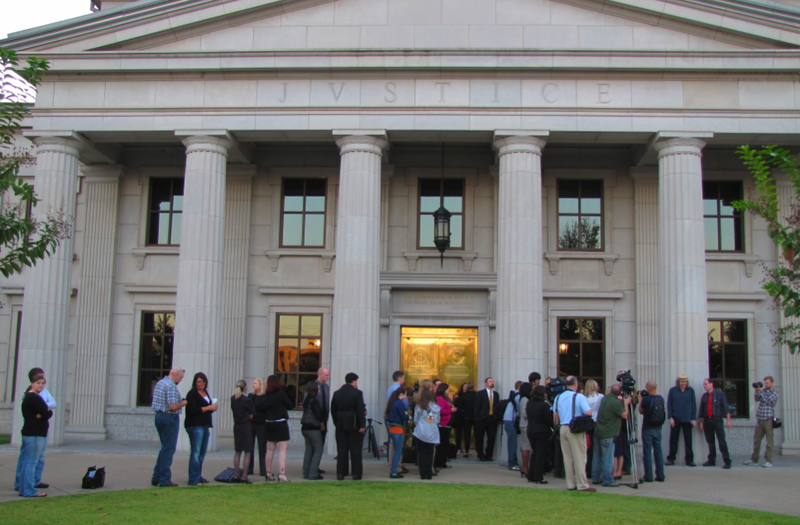LITTLE ROCK — The Arkansas Supreme Court has ordered evidentiary hearings for three men convicted of the grisly murders of three West Memphis children, paving the way for possible new trials.
An attorney for Damien Echols argued before the court last month that DNA evidence tested since his conviction justified a new trial since none of it linked him to the crimes. His defense team also challenged statements purportedly made by a jury foreman that may have biased the other jurors.
Echols, along with Jason Baldwin and Jessie Misskelley, was convicted of the 1993 slayings of three 8-year-old boys who were found dead and hog-tied in a ditch off Interstate 40 in West Memphis. Baldwin and Misskelley were sentenced to life in prison.
The court ruled Thursday in three separate opinions that all three men will get new hearings "to determine whether a new trial is warranted."
Lonnie Soury, a spokesman who has been active in the effort to free Echols, Baldwin and Misskelley, said the new hearing for Echols was the best development in the case short of an overturned conviction.
"This is essentially the first good news Damien Echols has had in the 17 years he has been on death row," Soury said, adding Echols likely learned of the hearing Thursday morning by phone.
In the 16-page opinion on Echols by Associate Justice Ronald L. Sheffield, the high court reversed and remanded a circuit court ruling denying the motion for a new trial and said that that court had "erroneously interpreted the Arkansas DNA testing statutes." The circuit court will hold the new hearing "promptly" to consider DNA test-results with all other evidence in the case "regardless of whether the evidence was introduced at trial," Sheffield wrote.
Document set
West Memphis Murders
Sheffield added that the justices dismissed the state's contention that DNA evidence had to conclusively prove innocence, noting that it's hard to see how that would ever be possible.
"While there is a significant dispute in this case as to the legal effect of the DNA test results, it is undisputed that the results conclusively excluded Echols, Baldwin, and Misskelley as the source of the DNA evidence tested," Sheffield wrote.
Dennis Riordan, Echols' attorney who argued before the court, said afterward he was confident a new evidentiary hearing would ultimately lead to a new trial.
Soury echoed that sentiment Thursday, saying the defense would present the new DNA evidence, the juror misconduct evidence, forensic evidence and more.
"We are (confident)," he said. "You never can be completely confident, but we're certainly hopeful. We believe we have strong evidence."
The decisions come five weeks after arguments before the state's highest court.
